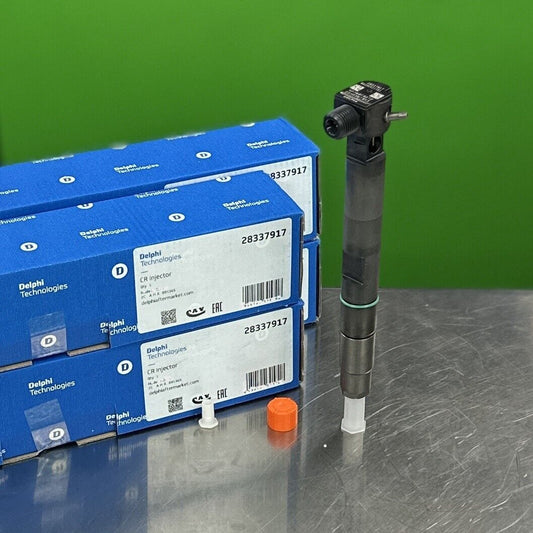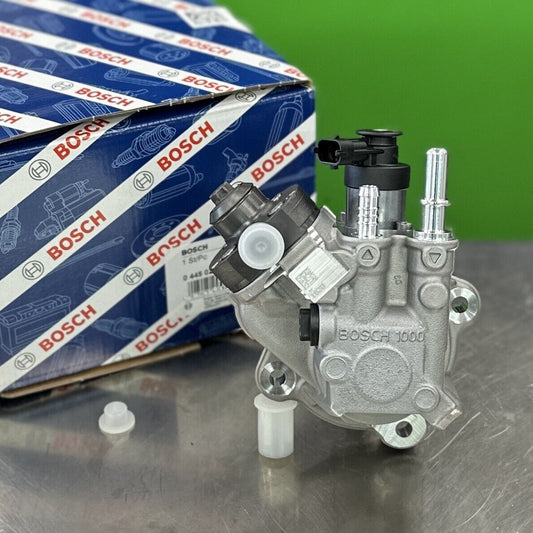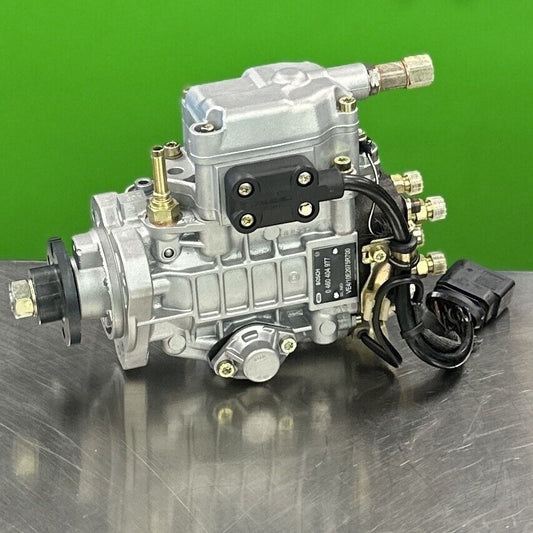Diesel Fuel Efficiency Tips for Long-Distance Haulers in Nevada
When it comes to maximizing fuel efficiency for long-distance haulers in Nevada, there are several key strategies that can make a significant difference in both cost savings and performance. Proper vehicle maintenance is crucial in this endeavor. Regular engine tuning, checking tire pressure, and promptly addressing any mechanical issues are essential steps to ensure optimal fuel efficiency and overall vehicle performance.
Alongside maintenance, mastering efficient driving techniques is paramount. Long-haul truck drivers can significantly reduce fuel consumption by maintaining a steady speed, avoiding sudden accelerations and decelerations, and utilizing cruise control especially on highways. These simple yet effective driving practices can make a substantial impact on fuel efficiency over long distances.
Route planning and optimization play a vital role in fuel efficiency as well. By strategically planning routes to steer clear of traffic congestion, construction zones, and steep inclines, drivers can minimize fuel wastage and maximize efficiency. The use of GPS systems can aid in finding the most fuel-efficient paths, ensuring smoother and more economical journeys.
Integrating technology into the driving experience can further enhance fuel efficiency. Utilizing fuel monitoring systems, telematics, and eco-driving apps allows drivers to track fuel consumption, analyze driving habits, and make data-driven decisions to optimize efficiency. These technological tools provide valuable insights that can lead to significant fuel savings over time.
Effective load management is another key aspect to consider for long-distance haulers looking to improve fuel efficiency. Proper load distribution, reducing unnecessary weight, and utilizing aerodynamic trailers can all contribute to decreasing drag and improving overall fuel economy. By optimizing the way cargo is loaded and transported, drivers can achieve better fuel efficiency results.
Exploring alternative fuel options is also a worthwhile consideration for long-haul trucking in Nevada. Investigating the availability and benefits of alternative fuels such as biodiesel and natural gas can offer eco-friendly and cost-effective alternatives to traditional diesel. Embracing these alternative fuel sources can not only reduce environmental impact but also potentially lead to long-term cost savings for drivers.
Proper Vehicle Maintenance
Proper vehicle maintenance is crucial for long-haul truck drivers in Nevada to ensure their trucks operate at peak efficiency and performance levels. Regular maintenance practices play a significant role in maximizing fuel efficiency and reducing operational costs. Tuning the engine regularly, checking tire pressure, and promptly addressing any mechanical issues are essential steps in maintaining optimal fuel efficiency. By keeping the vehicle in top condition, drivers can avoid potential breakdowns on the road that may lead to delays and increased fuel consumption.
One key aspect of proper vehicle maintenance is the prompt response to any issues that may arise during the journey. Truck drivers need to be vigilant in monitoring the vehicle's performance and addressing any warning signs immediately. Ignoring minor problems can escalate into major issues that not only impact fuel efficiency but also pose safety risks. By staying proactive and addressing maintenance issues promptly, drivers can ensure a smooth and efficient journey.
In addition to addressing immediate concerns, long-haul truck drivers should adhere to a regular maintenance schedule to keep their vehicles in optimal condition. This includes scheduled oil changes, filter replacements, and overall inspections to identify any potential issues before they escalate. By following a proactive maintenance routine, drivers can prevent costly repairs and ensure that their vehicles operate efficiently throughout the long hauls across Nevada's diverse terrains.
Moreover, proper vehicle maintenance extends beyond the mechanical aspects to include the overall cleanliness and organization of the truck. A well-maintained vehicle not only reflects the professionalism of the driver but also contributes to fuel efficiency. Removing unnecessary items from the truck, organizing cargo efficiently, and keeping the exterior clean can all contribute to reducing drag and improving aerodynamics, ultimately enhancing fuel economy.
Driving Techniques
When it comes to for long-haul truck drivers in Nevada, mastering efficient practices is key to maximizing fuel efficiency and cost savings. Imagine yourself as a skilled conductor orchestrating a symphony of gears and pedals, smoothly navigating the highways and byways of the Silver State. By maintaining a steady speed like a seasoned captain steering a ship through calm waters, you can significantly reduce fuel consumption. Avoid sudden accelerations and decelerations, akin to smoothly gliding through the ebbs and flows of traffic, to conserve precious diesel fuel.
Utilizing cruise control on the expansive highways of Nevada is akin to setting your vehicle on autopilot, allowing for a consistent speed and optimal fuel usage. It's like engaging the cruise control feature transforms your truck into a well-trained horse, trotting along effortlessly without wasting unnecessary energy. By letting technology assist in maintaining a constant pace, you can enhance fuel efficiency and focus on the vast landscapes that unfold before you.
Picture yourself as a skilled pilot navigating through the skies, adjusting your altitude and speed to optimize performance. Similarly, adjusting your driving techniques based on the terrain and traffic conditions can greatly impact fuel efficiency. Just like a pilot calculates the most efficient flight path, long-haul truck drivers should plan their routes meticulously to avoid congestion, construction zones, and steep inclines. Implementing these driving strategies is like fine-tuning an engine, ensuring that every drop of fuel is utilized efficiently to propel you forward on your journey.
Route Planning and Optimization
When it comes to maximizing fuel efficiency for long-haul truck drivers in Nevada, route planning and optimization play a crucial role in achieving cost savings and smoother journeys. By strategically planning your routes and optimizing them for fuel efficiency, you can minimize fuel consumption and reduce overall expenses. One key aspect of route planning is to avoid traffic congestion, construction zones, and steep inclines, which can all contribute to increased fuel usage and wear and tear on your vehicle.
Utilizing GPS systems and navigation apps can be immensely helpful in finding the most fuel-efficient paths and avoiding potential obstacles along the way. These tools can provide real-time traffic updates, suggest alternative routes, and help you navigate through unfamiliar territories with ease. By staying informed and planning ahead, you can make informed decisions that benefit both your fuel efficiency and overall driving experience.
Additionally, considering the time of day and weather conditions when planning your routes can also impact fuel efficiency. Opting for routes with less traffic during off-peak hours can help you maintain a steady speed and avoid unnecessary idling, ultimately saving on fuel consumption. Similarly, being mindful of weather conditions and potential road closures due to inclement weather can prevent you from taking detours that may be less fuel-efficient.
Moreover, incorporating rest stops and refueling stations into your route planning can ensure that you have access to necessary amenities and fueling options along the way. By strategically mapping out these stops, you can avoid last-minute detours and ensure a seamless journey without compromising on fuel efficiency.
In essence, route planning and optimization are essential components of a long-haul truck driver's strategy to enhance fuel efficiency and reduce operational costs. By leveraging technology, staying informed about road conditions, and proactively planning your routes, you can navigate through Nevada's vast landscapes with efficiency and precision, all while saving on fuel and optimizing your overall driving experience.
Technology Integration
When it comes to maximizing fuel efficiency for long-haul truck drivers in Nevada, technology integration plays a crucial role in achieving optimal results. By leveraging advanced tools and systems, drivers can track fuel consumption, analyze driving habits, and ultimately enhance efficiency on the road.
One key aspect of technology integration is the use of fuel monitoring systems, which provide real-time data on fuel usage, allowing drivers to make informed decisions to reduce consumption. These systems can detect inefficiencies and help drivers adjust their driving behavior to save on fuel costs.
Telematics is another valuable technology that enables truck drivers to monitor vehicle performance, track routes, and receive maintenance alerts. By utilizing telematics, drivers can proactively address issues that may impact fuel efficiency, ensuring smooth operations throughout their journeys.
Additionally, eco-driving apps have become increasingly popular among long-distance haulers. These applications offer personalized feedback on driving behavior, highlighting areas for improvement to enhance fuel economy. By incorporating eco-driving techniques recommended by these apps, drivers can achieve significant fuel savings over time.
Integrating technology into daily operations not only benefits individual drivers but also contributes to overall fleet optimization. By analyzing data collected from various technology tools, fleet managers can identify trends, implement best practices, and streamline operations to maximize fuel efficiency across the entire fleet.
In a dynamic industry where every mile counts, staying ahead of the curve with technology integration can give long-haul truck drivers a competitive edge. From fuel monitoring systems to eco-driving apps, embracing innovative solutions is essential for navigating the roads of Nevada with efficiency and precision.
Load Management
When it comes to load management for long-haul truck drivers in Nevada, ensuring proper distribution of cargo is crucial for both efficiency and safety on the road. Imagine your truck as a finely tuned machine, where the weight distribution acts as the gears in a clock, each piece working together seamlessly to propel you forward smoothly and efficiently. By optimizing the weight distribution within your trailer, you can reduce unnecessary strain on the engine, improve handling, and ultimately enhance fuel economy.
One effective strategy for load management is to minimize unnecessary weight by evaluating each item being transported. Think of it as packing for a trip - do you really need to bring along that extra suitcase full of items you might not use? By shedding unnecessary weight, you can lighten the load on your truck, allowing it to operate more efficiently and consume less fuel. Additionally, consider the placement of heavier items within the trailer to maintain balance and stability during transport.
Another aspect of load management involves utilizing aerodynamic trailers to reduce drag and improve overall fuel economy. Picture your truck slicing through the air like a sleek arrow, encountering minimal resistance as it travels down the highway. Aerodynamic trailers are designed to streamline airflow around the vehicle, minimizing drag and increasing fuel efficiency. By incorporating these specialized trailers into your fleet, you can optimize your truck's performance and lower fuel consumption during long-distance journeys.
Alternative Fuel Options
When it comes to long-haul trucking in Nevada, exploring alternative fuel options can be a game-changer for both the environment and cost savings. One of the most popular choices among truck drivers is biodiesel, a renewable fuel made from organic materials like vegetable oils and animal fats. Not only is biodiesel more eco-friendly than traditional diesel, but it also offers comparable performance and can be used in existing diesel engines without modifications.
Another alternative fuel gaining traction in the trucking industry is natural gas. With lower emissions and potentially lower costs, natural gas is seen as a cleaner alternative to diesel. In Nevada, where environmental regulations are becoming stricter, natural gas can be a viable option for long-distance haulers looking to reduce their carbon footprint.
When considering alternative fuel options, it's essential for truck drivers to weigh the availability of these fuels along their routes. While biodiesel and natural gas are promising alternatives, the infrastructure for refueling stations may still be limited in certain areas. Proper planning and research are crucial to ensure that truck drivers can access these alternative fuels conveniently during their journeys.
Frequently Asked Questions
-
What are the benefits of proper vehicle maintenance for fuel efficiency?
Proper vehicle maintenance plays a crucial role in maximizing fuel efficiency by ensuring that the engine operates at its peak performance, tires are properly inflated to reduce rolling resistance, and all mechanical components are in optimal condition. Regular maintenance not only helps save fuel but also enhances the overall longevity and reliability of the vehicle.
-
How can driving techniques impact fuel efficiency?
Driving techniques significantly influence fuel efficiency. Practices such as maintaining a steady speed, gentle acceleration and braking, and using cruise control on highways can help reduce fuel consumption. By driving efficiently, long-haul truck drivers can cover more miles per gallon, ultimately saving on fuel costs and reducing environmental impact.
-
What role does load management play in improving fuel economy?
Load management is essential for optimizing fuel economy as it directly affects the amount of energy required to move the vehicle. Proper load distribution, reducing unnecessary weight, and using aerodynamic trailers can minimize drag and enhance fuel efficiency. By managing the load effectively, truck drivers can achieve better mileage and cost savings on fuel.
-
How can technology integration help in enhancing fuel efficiency?
Technology integration offers advanced tools like fuel monitoring systems, telematics, and eco-driving apps that enable truck drivers to track fuel consumption, analyze driving behavior, and identify areas for improvement. By utilizing these technologies, drivers can make informed decisions to optimize their routes, driving habits, and overall fuel efficiency.
-
What are the advantages of exploring alternative fuel options for long-haul trucking?
Exploring alternative fuel options such as biodiesel and natural gas presents eco-friendly and cost-effective solutions for long-haul trucking in Nevada. These fuels offer reduced emissions, lower dependency on traditional diesel, and potential cost savings in the long run. Embracing alternative fuels aligns with sustainability goals and contributes to a greener transportation industry.



